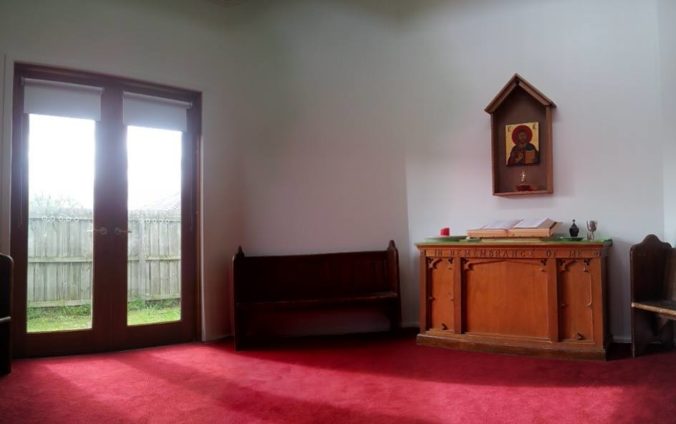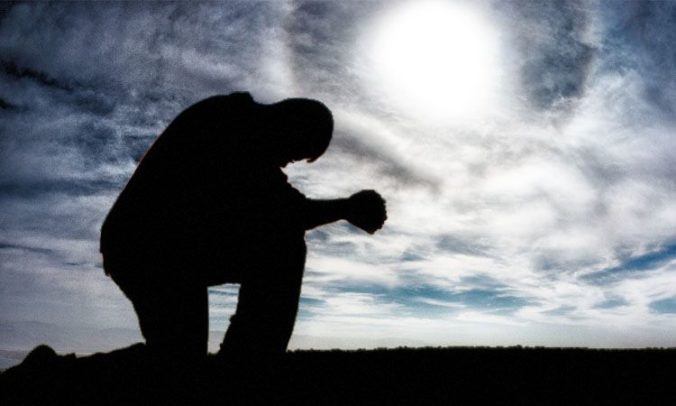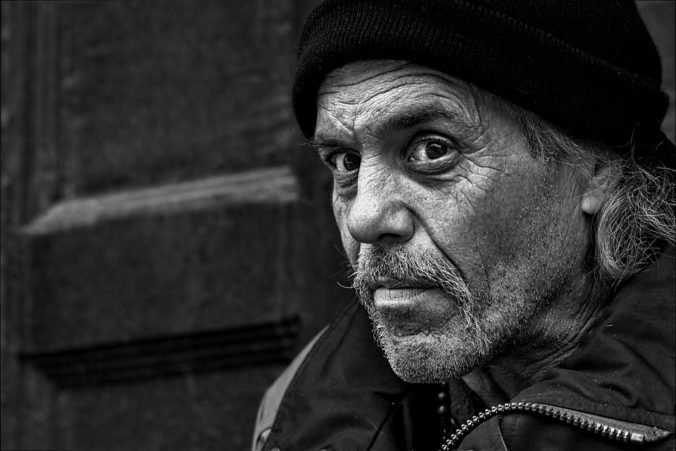Category: Ego (Page 1 of 3)
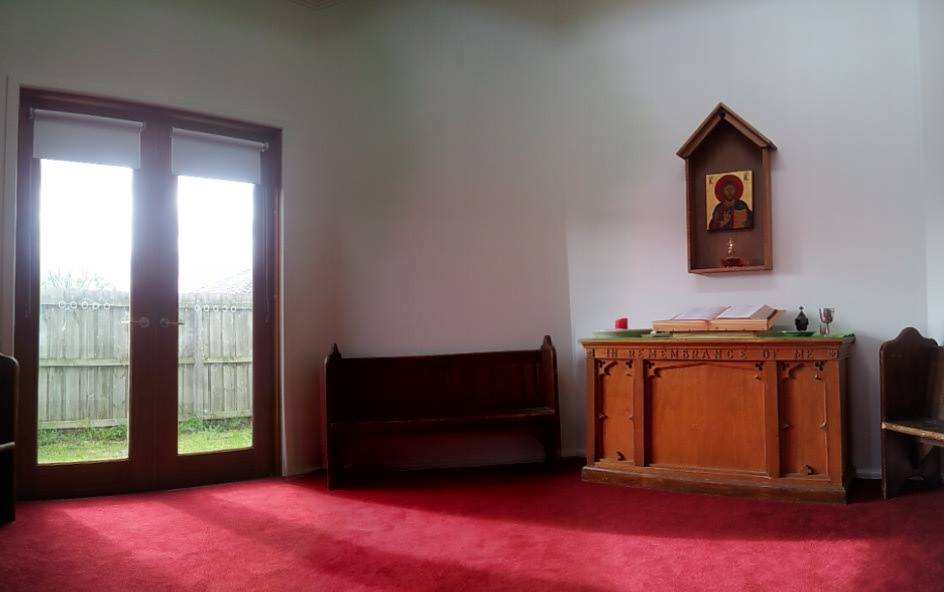 Two things hit me at church recently.
Two things hit me at church recently.
There’s something about the solemnity of remembering the gospel as we gather on a Sunday morning.
I was feeling distant from God yesterday morning, sort of self-sufficient and off with my ego. But as we sang, prayed and listened to Scripture, I remembered again how I am constantly touched by grace; I am given what I haven’t worked for. I am given it purely as a gift and nothing else. The Christian message continues to touch me in the deepest of places like nothing else does. I need constant reminding and I am constantly reminded. I am never cast adrift for forgetting once too often. God never gives up on me.
The other thing that got me again was one of the Lectionary readings. It was from the first letter of John. In the church I grew up in, the number one favourite verse, the one that everyone could recite any time, was John 3:16 – For God so loved the world…
But I was never taught to remember the same chapter and verse from John’s first letter like I was that from John’s gospel. Millions of evangelicals can quote John 3:16 by heart, but how many of us can quote 1 John 3:16 and the couple of verses after that? I wonder if we were never taught them because they are too confronting to our comfortable, middle-class, Western, consumer-oriented church ears, and they talk a bit too much about caring for the poor, which, after all, is an aside from the real gospel if you believe what I was taught and what many Christians are still taught.
Here’s what 1 John 3:16-18 says:
“This is how we know what love is: Jesus Christ laid down his life for us. And we ought to lay down our lives for our brothers and sisters. If anyone has material possessions and sees a brother or sister in need but has no pity on them, how can the love of God be in that person? Dear children, let us not love with words or speech but with actions and in truth.”
Giving materially to our brothers and sisters in need is as much the gospel as anything else. And it’s right there in the Bible.
The insanity of resentment is that it is always about us, it is always us that is hurt by it (because often the person we are resenting doesn’t even know about it), yet we think that our resentment is going to show them how wrong they have been.
On top of that is the fact that insanity is doing the same thing over and over and expecting a different result. I think it was Einstein who said that we can’t solve a problem with the same mindset that gave us the problem in the first place.
When I resent someone, it is really all about me. The other person has generally done nothing wrong, and even if they have, my resentment is still all about me. It is about how hurt I feel about not feeling heard or understood.
There is something in me that rages against the injustice that nobody understands. And sometimes that’s true. Too many people have not been listened to and heard as children, and it comes out as destructive behaviour in adulthood.
Martin Luther King said that violence is the language of the unheard. He didn’t condone the violence, but he did understand it. There is a huge difference. We can’t do anything about times in our childhood when we should have been heard but weren’t, but we can do something now.
I found a meme the other day that said that change happens when the pain of staying the same is greater than the pain of change. That’s when we will deal with resentment and be able to forgive.
When I let go of resentment, by changing my attitude to one of thankfulness, or by praying for the person I am resenting, I am instantly liberated from my slavery to self-obsession. That’s the power of forgiveness. My burden is lifted and I feel free again. And I realise anew that this is how I want to live. I look forward to being reminded about this a few more times tomorrow.
I reckon humility is the hardest thing in the world.
From the moment we are born, we crave attention; we are desperate to be heard. It’s a normal human need. But even those who were brought up with the most loving and attentive parents have still had to deal with a deficit of attention. And so we spend our lives trying to get ourselves heard, our insides sometimes screaming for someone to just listen to us. We exalt ourselves, desperate to let people know how great we are. But humility teaches us the opposite; it teaches us that the ego has to die if we are to live.
When I am around people who have stuffed their lives up but are now recovering, I find their humility awe-inspiring and challenging. These people teach me what humility really is and in the process they show me how judgmental, arrogant and ‘superior’ I often am.
When you’re around truly humble people, those who know their own brokenness because it’s so obvious that there is just no hiding it, you see how far short you fall. But at the same time you don’t feel shamed by them. Humility has no interest in shaming anyone. It quietly, just through its actions, shows you a better way. That was the amazing balance of Jesus’ life. He loved people in their brokenness, and just by that, showed people how far short they fell. But he never shamed them. The only people he warned that they were in real trouble were the ones who were convinced they weren’t.
When I realise how far I fall short of the mark of humility, I actually can’t imagine myself ever being truly humble. My only hope is to ask God to do it for me.
I’ve made some huge mistakes in my life, with massive consequences. And yet I still find myself feeling judgmental and superior a lot of the time. That says much more about me than it does about those people.
To find out a bit more about what it might look like to actually be humble, I recently went back to a Christian classic from two decades ago, Philip Yancey’s What’s So Amazing About Grace?. Towards the end of the book, Yancey recalls Jesus’ meeting with the woman at the well in John 4. Instead of being moralistic and telling the woman how immoral she was by living with a man who was not her husband in that culture, he said, in effect, ‘I sense you are very thirsty,’ and proceeded to show her that the water she was drinking would never satisfy her, and then offered her something that would, forever.
Yancey then explains, “When I am tempted to recoil in horror from sinners, from “different” people, I remember what it must have been like for Jesus to live on earth. Perfect, sinless, Jesus had every right to be repulsed by the behaviour of those around him. Yet he treated notorious sinners with mercy and not judgment.” And yet I, who have caused so much havoc in my life, still have the gall to think I am better than others.
All this makes me want to sit at the feet of Jesus more. It was the rotten ones, the thieves, prostitutes and liars who flocked to Jesus because he accepted them for who they were. The Pharisees were shockingly offended when Jesus had the nerve to tell a story of how a tax collector, and not a ‘righteous’ religious person like a Pharisee, was actually more pleasing in God’s sight because the tax collector was humble and cried out to God for mercy.
It’s the notorious sinners who I want to be around, because I am one of them. I feel more comfortable with them than I do with the pious, self-righteous and judgmental ones; the latter remind me too much of myself.
 I’d join the movement
I’d join the movement
If there was one I could believe in
Yeah I’d break bread and wine
If there was a church I could receive in
‘Cause I need it now
To take the cup
To fill it up
To drink it slow
I can’t let you go
I must be an acrobat
To talk like this
And act like that
– U2, Acrobat
I was talking with some friends tonight, and we got on to opening up about the contradictions we live with inside ourselves, how we can appear all righteous on the outside but have the darkest of thoughts on the inside. And they can happen from one minute to the next.
I am amazed often by my own contradictions. I can be incredibly loving to someone, and then minutes later have thoughts that are so selfish I wonder where they come from. I can relate to the acrobat in the song quoted above, talking like this and acting like that. I know my own hypocrisy, how I appear to so many people, but how I at times feel like a fraud. There’s that voice inside me that tells me that a genuine person would never have thoughts that are that egotistical. It’s the voice that says you’re never really good enough.
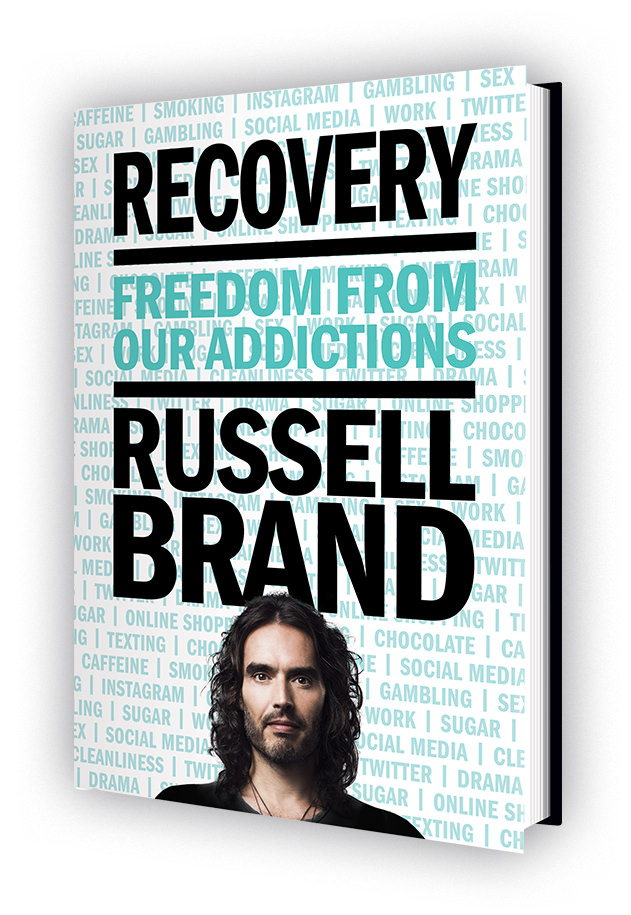 Russell Brand is an addict. That doesn’t define him, but it is what he identifies as, and what he has to remind himself of every single day.
Russell Brand is an addict. That doesn’t define him, but it is what he identifies as, and what he has to remind himself of every single day.
Most of us would know Brand as the eccentric comedian and movie star with the slightly annoying Cockney accent. But his new book, Recovery: Freedom from our addictions, tells the story of the real Russell Brand, the man behind the image, and the one whose life was a complete mess until 14 years ago.
Identifying as a drug addict, alcoholic, sex addict, and as having various other addictions, this book reveals Brand as humble, brutally honest and a man revelling in the new life that has resulted from him vigorously living out the !2 Steps every day of his life since he came into recovery in 2002.
You may (or may not) be surprised to find that Donald Trump and Jesus have one significant thing in common…
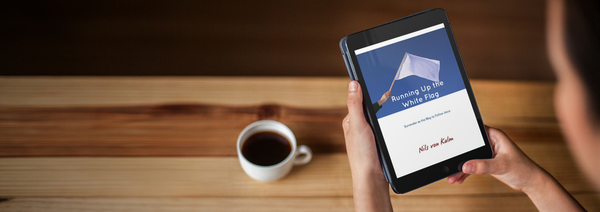 Sight Magazine has published an excerpt from my ebook, Running Up the White Flag.
Sight Magazine has published an excerpt from my ebook, Running Up the White Flag.
Click here to read the article and here to buy the book on Amazon. I’d love you to leave an honest review on Amazon as well.
Before people like me judge Donald Trump for his bombastic statements, let’s remember that he is a reflection of the adolescent culture we all live in.
Here is an article of mine on the Trump phenomenon, published here in Ethos…
Donald Trump as a reflection of an adolescent culture
Monday, 4 April 2016 | Nils von Kalm I find myself fascinated by the Donald Trump phenomenon. Why is it that a man who blatantly lies, advocates war crimes, promotes xenophobia and can’t decide whether or not to condemn the support of a KKK leader, is set to become the Republican nominee for the leadership of the most powerful nation in the world?
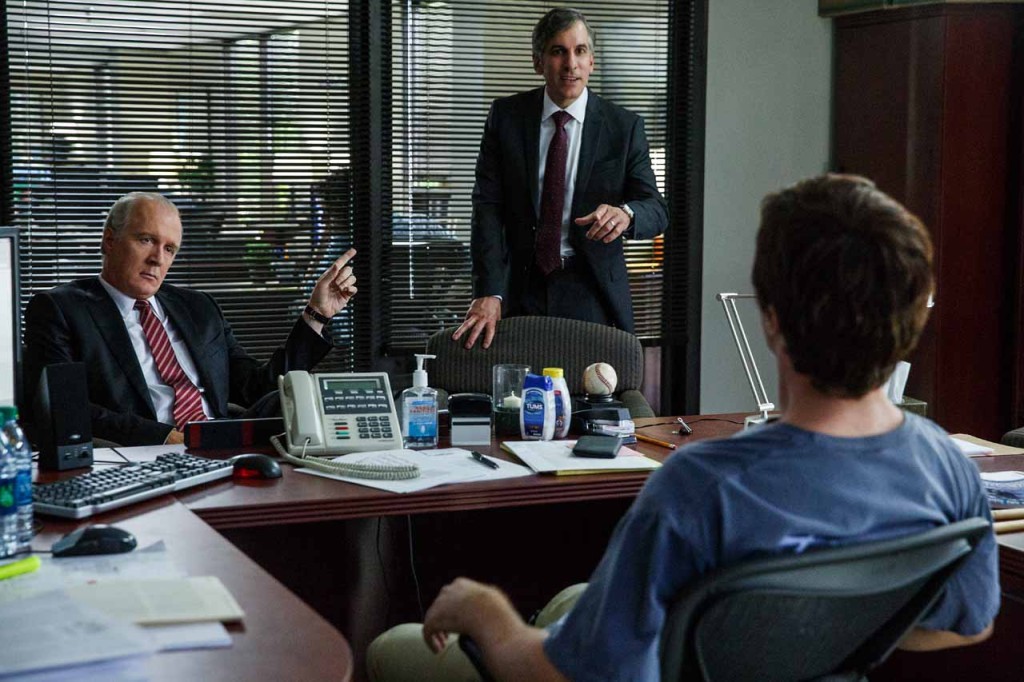
We all remember the Global Financial Crisis, or GFC, as it was called. It was a time when the world stood on the brink of economic catastrophe, to the point that it was being talked about as leading to another Great Depression such as the world suffered in the 1930s.
The Big Short is the story of why the GFC happened, and how a few people saw it coming but no one listened to them.
The movie is based on the 2010 book of the same name by Michael Lewis. It stars Christian Bale, Steve Carell, Ryan Gosling, and Brad Pitt.
What this movie highlights is the problem of human greed at its worst, and the evil which is unleashed when people simply don’t care about anyone else but themselves.
The housing bubble of 2007/08, which led to the GFC, highlighted the problems of an economic system that is unregulated and doesn’t take into account human nature. The problem with unfettered market capitalism is that some people have to remain poor for others to get rich. It is an amoral system, which, when left to its own devices, produces unprecedented greed the likes of which took the world to the edge of the economic cliff just those few years ago.
